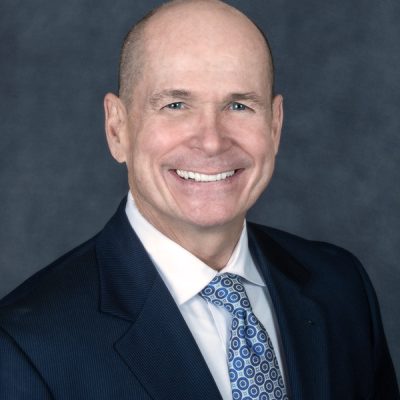The ability to provide our aging loved ones the care they need and deserve can be difficult. Nursing homes, assisted living, memory care, rehabilitation and palliative care, local agency services, and in-home care, have been a tremendous help to many; allowing caregivers to provide their loved ones the specialized care, while allowing families the time to live their life. Most caregivers, after making a choice of care and treatment, have found relief.
Last Spring, the introduction and spread of COVID19 changed everything in the world of elderly care. The ability to check on loved ones or even visit them in many cases was completely impossible.
To make matters worse, nurses and healthcare employees walked off the job in fear of contracting COVID or from feeling overburdened. Over time, unemployment increased and transparency became a thing of the past. Many facilities were stretched thin.
Unemployment, stimulus money and local incentives have made it exceptionally difficult to hire skilled caregivers, CNA’s (Certified Nursing Assistants) and HHA’s (Home Health Aides) because they could now receive as much or more money by not working at all.
Many wondered how to keep their loved one safe and ensure they were getting the treatment they deserved. More and more It’s become critical to adapt to ensure your loved one is safe. Here are ways to continue to keep an eye on your loved one and ensure they are getting the treatment you expect:
Know Your Staff

Stories of elder abuse abound. Those in positions of trust that have bad motives, behave similar to any predator. They groom their victim into an overly-close pseudo relationship to get what they want. Their goals could be financial by gaining access to signed checks, debit cards and PIN numbers, resulting in purchases of vacations, vehicles and even houses. Sadly, some predator caregivers may prey upon your loved one in a physical manner, and the signs may not be obvious.
Get to know the staff members who spend the most time with your loved one. Be a detective. Be observant and ask questions. Look for new large purchases or significant changes in behavior. Tough times financially and emotionally can change what has historically been a great employee at a facility or home care provider and motivate them to do things that they would never have before. Don’t be complacent.
Watch your loved ones finances closely. Make sure valuables have a safe and secure place. Create an inventory and check it periodically. Watch for any changes in mental health, physical health or behavior. Ask to be notified of any staff changes at the facility of those who have access to or work with your loved one. Not every facility or home care provider has a policy to provide this information. You may want to get them to agree to this at the beginning.
Give Them a Break, Not Build Up to Burn Out
It’s been stressful on everyone. Unemployment, fear of illness, access to PPE and the debate of vaccines.
If you sense your home caregiver or the primary caregivers are overwhelmed more than usual, ask for someone to help cover your loved one for a week. This may be an additional cost to get a new or additional caregiver, but that extra time off may be what prevents a completely out of character neglect or poor act of behavior that would only hurt your loved one.
Employ an Unbiased, Qualified Second Set of Eyes
Sometimes a second set of trained eyes can stop something before it happens. While home care providers have always worked with facilities for patients who need more hourly help than their facility offers, home care workers became the trusted independent authorities about the condition of patients in facilities during lockdowns.
These home care CNA’s and HHA’s were able to enter in a COVID compliant manner and assess the wellbeing of elderly patients. They provided social isolation care and company to help address and alleviate the mental health impacts of elderly being isolated not only from their loved ones, but also the community and friends they had made in their facility as well as ensuring routines for memory care patients could be kept. Temperatures were checked and symptoms were reported to help enforce an unbiased report.
If any patient was neglected, they could report it as an unbiased party.
The Eye in the Sky
Installing Nanny Cams inside your home are legal in Florida, but there are steps you need to take to ensure its legal use.
Recording someone’s voice without consent is illegal in Florida. There is also still the issue of voyeurism, which is also illegal in Florida. This means, while you can place your cameras in plain view and post signs, you cannot place them in a bedroom or bathroom where, according to Florida Statute 810.145 (1)(c), is a “Place and time when a person has a reasonable expectation of privacy” where they may be bodily exposed.
There may already be video recording in a nursing home, assisted living facility, or memory care facility to also help be a second set of eyes. Ask your facility provider what their company policy is on video recording and usage, and talk to your home care provider should you plan on installing cameras. Get written consent of usage.
If You See Something, Say Something
The steps you take to ensure your loved one is cared for and safe may uncover a potential elderly abuse case for another local senior. After reporting any suspected elder abuse, neglect, and exploitation, be sure to contact us. We have compassionate, expert experience to provide your family and loved one the justice they deserve while protecting your family’s privacy. Contact us by simply messaging Todd Miner directly by text with the bubble on the bottom right; or by calling or filling out our secure online form today.
How to Report Elder Abuse, Neglect, and Exploitation
The Department of Elder Affairs works in conjunction with the Department of Children and Families (DCF) Adult Protective Services and the Aging Network to protect disabled adults or elderly persons from further occurrences of abuse, neglect or exploitation. Services provided may include protective supervision, placement and in-home and community-based services.
To report online – go to the DCF web site at https://www.myflfamilies.com/service-programs/abuse-hotline/report-online.shtml
To report by phone – call Florida Abuse Hotline at 1-800-96-ABUSE (1-800-962-2873). Press 2 to report suspected abuse, neglect or exploitation of a vulnerable adult. This toll free number is available 24/7. TTY (Telephone Device for the Deaf): 1-800-955-8771.
To report via fax, print and complete the DCF fax reporting form with details and fax to 1-800-914-0004.
Disclaimer:
While Todd Miner Law®️ strives to make the information on this website as timely and helpful and accurate as possible, the law firm makes no claims, promises, or guarantees that this information will prevent an accident or injury. Reference in this article or this website to any specific process or service, or the use of any trade, firm or corporation name is for the information and convenience of the public, and does not constitute endorsement, recommendation, or favoring by Todd Miner Law®️. The views and opinions expressed by any agency or entity referenced herein do not necessarily state or reflect those of Todd Miner Law®️.







